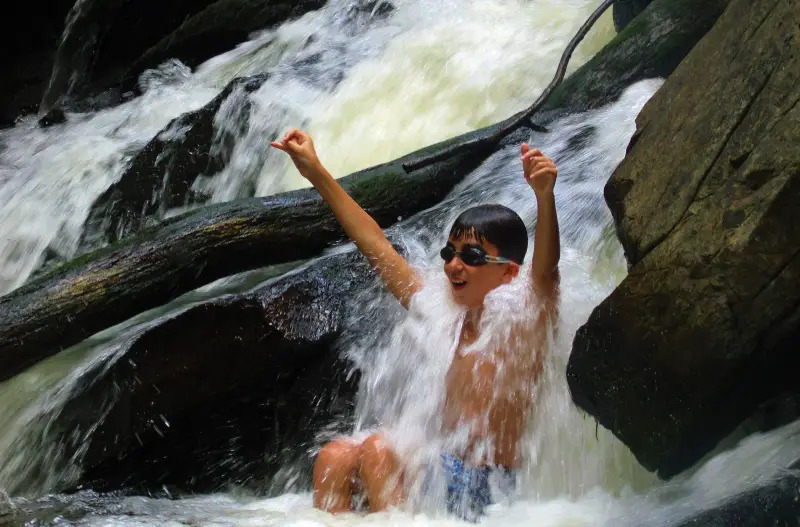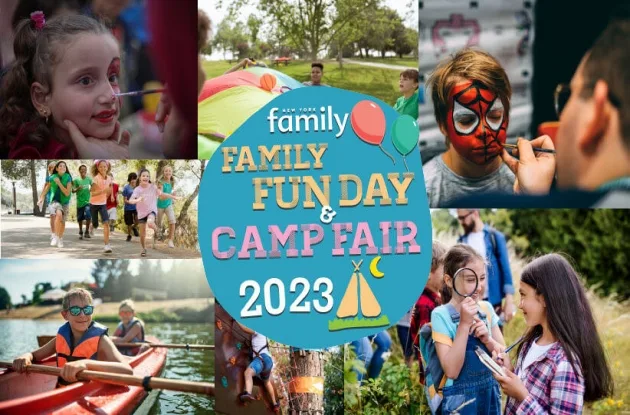The benefits of sending your kids to summer camp are numerous, from preparing them for college to helping them form friendships outside your influence. Here are four ways camp helps kids form a connection to nature.
“Scientists who study the human senses no longer talk about only five senses, but as many as 30. Many of these senses can be stimulated through immersion in natural environments. Not only do young people (and adults) who learn to use more of these senses feel more alive, they’re also better learners,” says Richard Louv, founding chairman of The Children & Nature Network and author of Last Child in the Woods: Saving Our Children from Nature-Deficit Disorder. And as the American Camp Association’s Barry Garst indicates, “few places other than camps provide children with the opportunity and freedom to connect with nature and also caring mentors.” Among the benefits of sending kids to sleepaway or nature-based summer camp:
 Campers at New Canaan Nature Center in CT learn wilderness survival skills, including setting up a base camp and camp kitchen, paddling, and navigating. “These skills help build character, develop leadership, and build confidence,” director Geoff McCann says. Pictured: A Journeyman Adventure camper explores Saugatuck Falls in Redding, CT. |
Being close to nature can help boost a child’s attention span, according to a study by two Cornell University environmental psychologists. Additionally, a study conducted by the University of Essex in England concluded that nature can help people recover from pre-existing stresses or problems, has an immunizing effect that can protect from future stresses, and helps people to concentrate and think more clearly. In some instances, camp may be the only time a child is in contact with the natural world.
Outdoor play leads to fit young bodies. Let’s face it, running around indoors does not compare to letting loose in nature. Organized camp activities in the fresh air can help develop a love of regular outdoor activity, leading to children who exercise because it’s fun—a start to healthy habits for life—and who avoid the obesity trap. Sixty-three percent of children who learn new activities at camp tend to continue engaging in these activities after they return home, according to research conducted by ACA.
Awareness breeds activism. Almost all traditional camps incorporate hikes and nature activities, often exposing children to animals they may be seeing for the first time. Coupled with instruction on practical environmental issues (littering, reuse and recycling, for example), this exposure can inspire kids. “Seeing animals in a natural setting for more than just a day and understanding how their choices have an impact on all systems of life is just the beginning,” says Gary Forster, former camping specialist for YMCA USA. “From awareness grows an appreciation, and from that standpoint, we see children who are ready to act.”
Kids take healthy risks. Camp allows children to feel safe and relaxed in a way they do not experience at home. The residential Camp Fiver, near Syracuse, reports that in 2011, 82 percent of children at its summer camp tried something new that they did not get to do anywhere else. “Many Fiver kids, when they first come to camp, are experiencing a rural environment for the first time,” says Christie Ko, Camp Fiver’s executive director, who relocates her Queens-based family to upstate New York while camp is in session. “Escaping their urban world of concrete and steel for a place with rolling green hills, streams filled with crayfish, and fresh air free from pollution can be truly eye-opening”—pushing them outside of their comfort zones and allowing them to take healthy (supervised) risks.



















